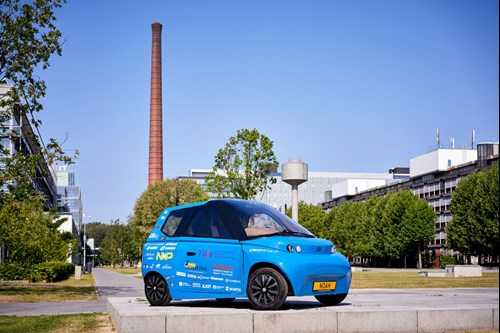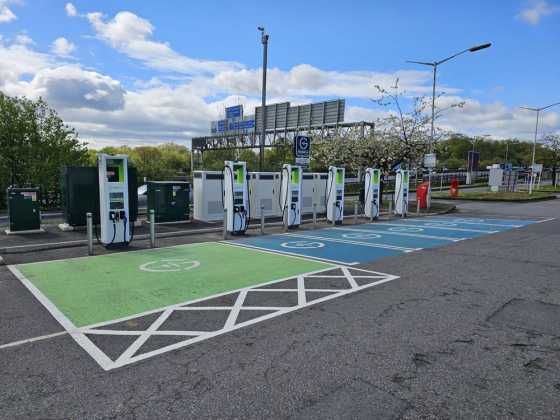World's first bio-based electric car created

An electric car with bodywork made from natural and biobased materials has been created by the Technical University of Eindhoven in the Netherlands and Total Corbion PLA.
No metal or traditional plastics were used for the structural parts of the car. The parts are made up of light and strong sandwich panels, based on natural fiber flax and Luminy® PLA supplied by Total Corbion PLA. In addition to being biobased, the parts are also recyclable, resulting in a 100% circular car, sustainable in all life phases.
The car, named Noah by the development team, was designed as a city car and features two seats and a spacious trunk. It is electrically-powered and has a range of up to 150 miles. At 360kg, the weight of the car excluding batteries is less than half the weight of comparable production cars.
The PLA supplied by Total Corbion PLA for use in the car is biobased and recyclable and made from renewable resources, offering a reduced carbon footprint versus many traditional plastics. High heat Luminy® PLA grades were used to construct the car, in order to ensure durability and sufficient heat resistance.
François de Bie, senior marketing director at Total Corbion PLA, said: "The result of this fantastic project shows just how far biobased materials have come, to produce such a complex product as a car. Noah is the proof that PLA is suitable for so much more than packaging. This is the first ever car to feature a fully biobased chassis and body panels. At Total Corbion PLA, we look forward to working together with the entire value chain to bring more high performance, durable and circular applications to market."
Noah was revealed earlier this month and is currently undertaking a European tour of car manufacturers, suppliers and universities to inspire others.



